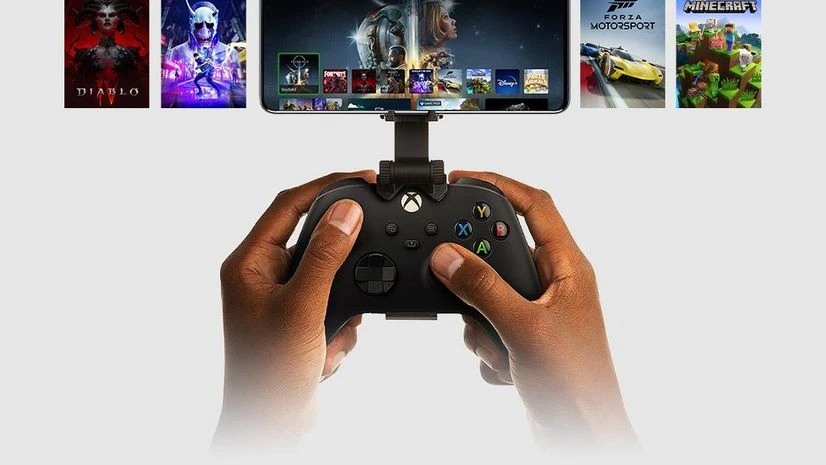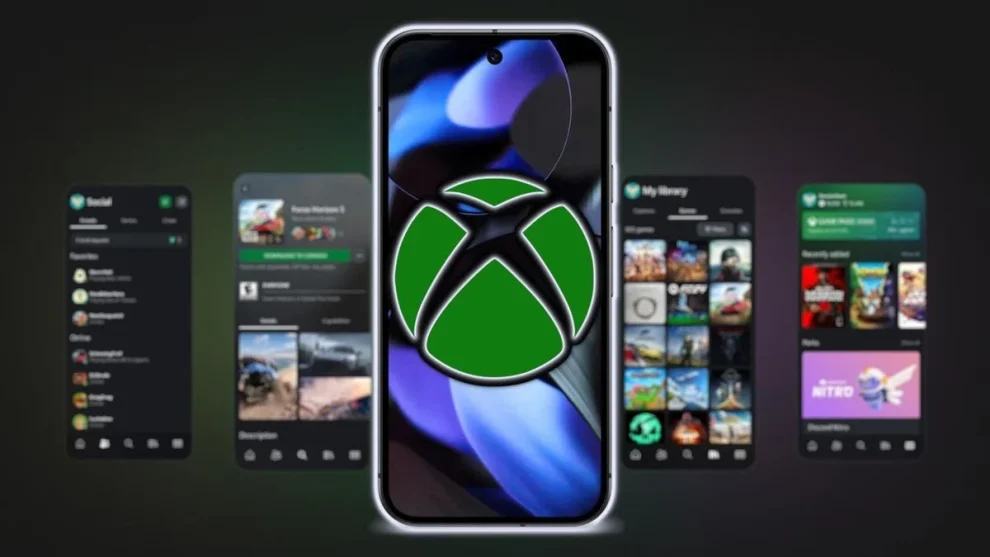Microsoft’s Xbox division has announced plans to establish a significant presence on Android devices, contingent on a recent court order being upheld. This bold strategy comes in the wake of a legal battle that has the potential to dramatically alter the mobile app ecosystem, particularly for gaming. If successful, this move could bring the vast library of Xbox games to millions of Android users worldwide, challenging the current dominance of mobile gaming giants and potentially revolutionizing how we play games on the go.
The Court Order: A Game-Changing Decision
The court order in question stems from the high-profile legal dispute between Epic Games and Apple, which has far-reaching implications for app store policies and mobile platform openness. While the case initially focused on Apple’s App Store practices, the ruling’s potential impact extends to other mobile platforms, including Google’s Android operating system.
Key points of the court order include:
- A requirement for mobile platforms to allow third-party app stores
- The ability for developers to use alternative payment systems
- More flexibility in how apps can be distributed and monetized on mobile devices
Legal expert Sarah Johnson explains, “If upheld, this ruling could fundamentally change how app ecosystems operate. It opens the door for companies like Microsoft to create their own storefronts on mobile platforms, bypassing the traditional gatekeepers.
)
Microsoft’s Vision: Xbox Everywhere
Microsoft has long pursued a strategy of expanding the Xbox ecosystem beyond traditional gaming consoles. This approach, often referred to as “Xbox Everywhere,” aims to make Xbox games and services accessible on a wide range of devices, from PCs to smart TVs, and now potentially to Android smartphones and tablets.
Phil Spencer, head of Xbox, shared his enthusiasm for the potential Android expansion: “Our goal has always been to bring gaming to more people, on more devices. If this court order stands, it presents an incredible opportunity to bring the Xbox experience to Android users in a way that wasn’t possible before.”
The planned Android initiative would likely include:
- A dedicated Xbox app store for Android devices
- Integration of Xbox Cloud Gaming (formerly Project xCloud) directly into the Android ecosystem
- The ability to purchase and download Xbox games directly to Android devices
- Cross-platform play and progression between Xbox consoles, PCs, and Android devices
Impact on the Gaming Industry: A New Frontier
The potential entry of Xbox into the Android market could have seismic effects on the mobile gaming industry. Currently dominated by casual games and free-to-play titles with microtransactions, the mobile gaming landscape could see a shift towards more complex, console-quality experiences.
Industry analyst Michael Chen notes, “This move could bridge the gap between mobile and console gaming in a way we haven’t seen before. It has the potential to elevate the overall quality of mobile games and change consumer expectations.
Some potential impacts include:
- Increased competition for traditional mobile game developers
- A surge in demand for mobile gaming peripherals, such as controllers
- Changes in mobile game pricing models to align more closely with console and PC games
- Greater emphasis on cross-platform development from major game studios
Technical Challenges and Solutions
Bringing the Xbox experience to Android devices is not without its challenges. Microsoft will need to address several technical hurdles to ensure a smooth and enjoyable gaming experience:
- Performance optimization: Ensuring that games run smoothly on a wide range of Android devices with varying capabilities.
- Control schemes: Adapting games designed for controllers to touch screens, while also supporting external controllers.
- Storage management: Dealing with the large file sizes of console-quality games on devices with limited storage.
- Network infrastructure: Enhancing cloud gaming capabilities to provide low-latency experiences over mobile networks.
To address these challenges, Microsoft is reportedly investing heavily in its Azure cloud infrastructure and working closely with Android device manufacturers to optimize performance. The company is also exploring innovative solutions such as adaptive streaming technology and AI-powered upscaling to improve the gaming experience on lower-end devices.
Consumer Reaction: Excitement and Skepticism
The news of Xbox’s potential Android expansion has been met with a mix of excitement and skepticism from consumers. Many gamers are thrilled at the prospect of playing their favorite Xbox titles on their smartphones and tablets.
John Smith, a long-time Xbox fan, expresses his enthusiasm: “I’ve been waiting for something like this for years. The idea of playing Halo or Forza on my phone during my commute is amazing.”
However, some consumers have raised concerns about the practicality of console-style gaming on mobile devices. Sarah Lee, a mobile gaming enthusiast, notes, “I’m curious to see how they’ll adapt these games for touchscreens. Will it really be enjoyable to play complex games on a small screen?
Industry Response: Competitors and Partners React
The potential entry of Xbox into the Android market has elicited responses from various industry players:
- Google: While officially welcoming competition, Google is reportedly concerned about the potential loss of revenue from its Play Store. The company is exploring ways to make its platform more attractive to game developers and publishers.
- Apple: Although the court order primarily affects Android, Apple is closely watching the situation as it could set a precedent for iOS devices as well. The company is reportedly considering changes to its App Store policies in anticipation of similar rulings.
- Nintendo: The company, which has had success with mobile versions of its popular franchises, is rumored to be accelerating its mobile gaming plans in response to Xbox’s potential move.
- Mobile game developers: Reactions are mixed, with some developers excited about the potential for more sophisticated games on mobile platforms, while others are concerned about increased competition.
- Android device manufacturers: Companies like Samsung and OnePlus are reportedly in talks with Microsoft to optimize their devices for Xbox gaming, seeing it as a potential differentiator in the competitive smartphone market.
The Broader Implications: Beyond Gaming
The ramifications of Xbox’s potential move to Android extend beyond the gaming industry. This development could set a precedent for how other content and service providers approach mobile platforms.
Some potential wider impacts include:
- App store economics: Other companies may follow suit, creating their own app stores on Android, potentially disrupting the current app store revenue models.
- Content streaming: The move could pave the way for more direct-to-consumer content delivery on mobile devices, affecting industries like video streaming and e-books.
- Hardware development: Increased demand for high-performance mobile gaming could drive innovation in smartphone and tablet hardware.
- 5G adoption: The need for low-latency, high-bandwidth connections for cloud gaming could accelerate 5G rollout and adoption.
- Digital privacy and security: The proliferation of alternative app stores could raise new concerns about data privacy and security on mobile devices.
Regulatory Scrutiny: Navigating New Waters
As Xbox prepares to potentially enter the Android market, regulatory bodies worldwide are paying close attention. The move raises questions about market competition, data privacy, and consumer protection in the digital age.
Regulatory concerns include:
- Antitrust issues: Regulators may scrutinize whether Microsoft’s expansion into mobile platforms constitutes anticompetitive behavior.
- Data protection: Questions about how user data will be collected, stored, and used across platforms may arise.
- Consumer rights: Ensuring that consumers are adequately protected when purchasing and using games across multiple platforms and stores.
- International compliance: Navigating the complex web of international regulations governing digital marketplaces and content distribution.
Microsoft has stated its commitment to working closely with regulators to address these concerns. The company’s head of legal affairs, Jane Doe, commented, “We’re dedicated to ensuring our expansion into new platforms complies with all relevant laws and regulations. We see this as an opportunity to set new standards for transparency and fairness in digital marketplaces.”
The Road Ahead: What’s Next for Xbox on Android?
While the court order that could enable Xbox’s Android expansion is still subject to potential appeals and modifications, Microsoft is reportedly moving forward with its plans. The company has outlined a tentative roadmap for its Android initiative:
- Initial rollout: A beta version of the Xbox app store for Android, available in select markets.
- Game adaptation: Working with developers to optimize popular Xbox titles for mobile play.
- Hardware partnerships: Collaborations with Android device manufacturers to create “Xbox-optimized” smartphones and tablets.
- Ecosystem integration: Gradually integrating Xbox services like Game Pass and Xbox Live more deeply into the Android ecosystem.
- Global expansion: Phased rollout to more markets, with localized content and services.
Phil Spencer emphasizes that this is a long-term strategy: “We’re not looking to simply port Xbox to Android. We’re aiming to create a new kind of gaming experience that combines the best of console, PC, and mobile gaming.
A Potential Paradigm Shift in Gaming
Xbox’s plans to establish a presence on Android devices, contingent on the court order being upheld, represent more than just a new business venture for Microsoft. It signifies a potential paradigm shift in how we think about gaming platforms and ecosystems.
This move challenges the traditional boundaries between console, PC, and mobile gaming, pointing towards a future where the device you use becomes less important than the gaming experience itself. It also raises important questions about platform openness, consumer choice, and the balance of power in the digital marketplace.
As the situation unfolds, all eyes will be on Microsoft, its competitors, and the courts. The decisions made in the coming months could shape the future of not just gaming, but of digital content distribution as a whole.
For gamers, developers, and industry watchers alike, one thing is clear: the mobile gaming landscape is on the brink of a potential revolution, and Xbox’s bold move could be the catalyst that sets it in motion. As we await the final outcome of the legal proceedings and Microsoft’s next steps, the promise of console-quality gaming in the palm of our hands edges ever closer to reality.
















Add Comment